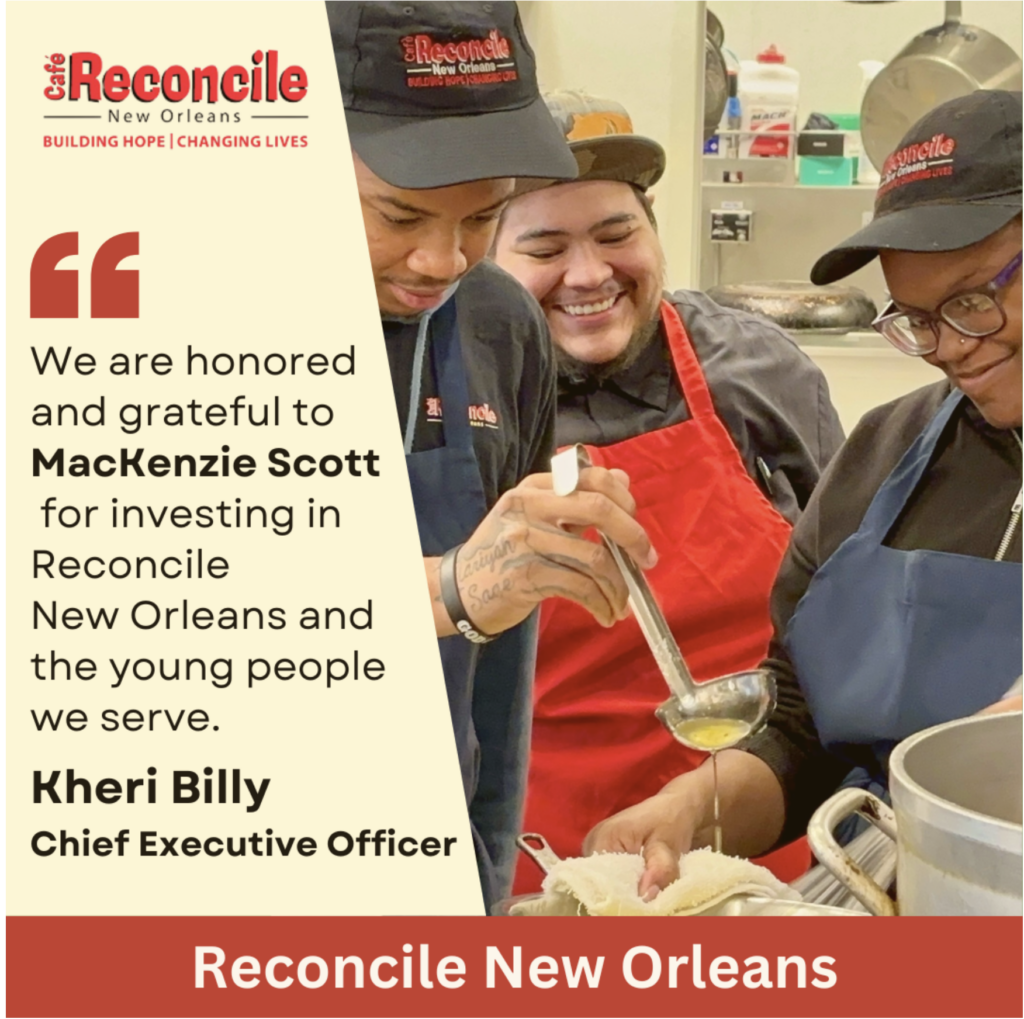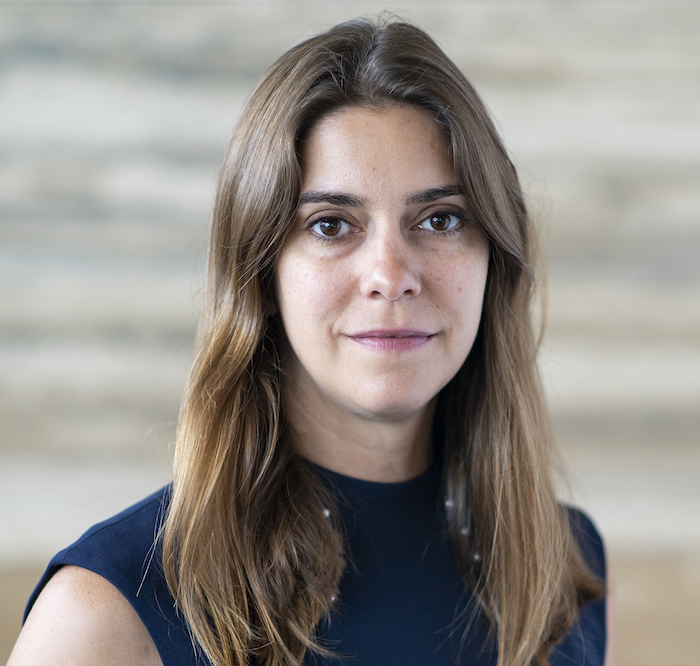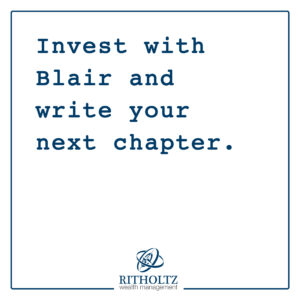I don’t write much about my community involvement. I serve on two nonprofit boards, chair an advocacy organization, and participate in a church committee focused on restorative justice. As you can see, I have trouble saying no to these opportunities. Giving my time back to my community is in my blood.
I serve as the Treasurer for an amazing workforce development organization called Cafe Reconcile New Orleans. Reconcile works with young adults to provide workforce training specific to the hospitality industry, which is huge in New Orleans. The cafe is the public-facing arm of the organization and allows the program interns to train in a real-world scenario. Anytime someone asks me to lunch during the workweek, I suggest Cafe Reconcile. Our Executive Chef, Martha Wiggins, is a former James Beard award nominee who left roles in some of the city’s top restaurants to mentor the next generation of chefs. The food is excellent. Reconcile was included on the New York Times’ ‘The Restaurant List‘ of 50 restaurants in the country last year.
This brings me to the recent announcement that philanthropist MacKenzie Scott made a $4 million gift to Cafe Reconcile last month. My jaw hit the floor when our CEO, Kheri Billy, called to tell me this news. This is the largest gift in Reconcile’s history and will allow for transformative growth and stability for the organization. Am I shocked that an organization led by four strong women received such a donation? Absolutely not. MacKenzie Scott nailed it with this donation.

If you’ve been involved in nonprofit development work, you can appreciate the uniqueness of Ms. Scott’s style of philanthropy. A word, by the way, she struggles with due to the narrowing of its definition to connotate donations made by the wealthiest donors. She explains that struggle on her website, Yield Giving, in an essay titled “No Dollar Signs this Time.”
So I was surprised to discover that dictionary definitions of philanthropy are so inclusive and beautiful: “love of humankind”; “the desire to promote the welfare of others”; “generous donation of money to good causes”; “work of practical beneficence.” What had happened? Somewhere along the line, this big, lovely word had shriveled to describing the humanitarian impulses of less than 1% of the world’s population. When did the rich become the only people with a “desire to promote the welfare of others”? Which is a more “generous donation of money to good causes” — 100 dollars from someone who earns 50,000 a year, or 100,000 from someone with 50 million in the bank? How did the only “work of practical beneficence” worth acknowledging become writing checks? – MacKenzie Scott
I cannot help but point out how MacKenzie Scott is reinventing philanthropy. The traditional grant-making process requires a lengthy application. Grant writing is a profession unto itself, requiring nonprofits to either pay a grant writer, hire a development officer, or both. Once submitted, grants are reviewed by a committee or board, often resulting in multiple rounds of additional questions and responses. Weeks, or usually months later, the nonprofit is notified of either the award or denial of the grant. The grant comes with strings attached, guiding the specifics of how and where to spend the dollars. Salaries and overheard are most often excluded or limited. The nonprofit must submit reports to prove that the money was spent per these rules. Then, the nonprofit starts the process again by submitting for a grant in the next cycle.
Scott has turned the traditional grant-making process upside down. She conducts “quiet research” on organizations that meet her giving objectives. This process aims to reduce the burden on award recipients by completing as much of the evaluation work as possible before contacting a nonprofit to request more information. Reconcile did not know the donor’s name until the award was granted. Once awarded, the funds were immediately delivered. The gift was made with no strings attached. Cafe Reconcile can spend the funds in any way it chooses.
I look forward to having a small voice in the planning process for the grant.
I have no words to describe the joy I felt when I learned about this transformative gift to Cafe Reconcile. I joined the board three years ago because I was drawn to its mission of providing workforce training to young adults. I’ve always believed in the strategy of “teaching a man to fish,” as the parable goes. Reconcile is doing this work for the young people of New Orleans, a city plagued by two major traumatic events in the 21st century – Hurricane Katrina and COVID. MacKenzie Scott’s gift ensures that Reconcile will continue this work for another generation. I am simultaneously in awe of her giving style and grateful to have the privilege of witnessing the gift’s results first-hand.
You can track MacKenzie Scott’s giving on her website, where you can read about the amazing organizations that have received these gifts. The interactive database is searchable for geography, focus area, keyword, and size. I invite you to see which organizations in your area have received gifts. To date, her donations total $17.3 billion to over 2300 organizations. In her own words,
My approach to philanthropy will continue to be thoughtful. It will take time and effort and care. But I won’t wait. And I will keep at it until the safe is empty.



